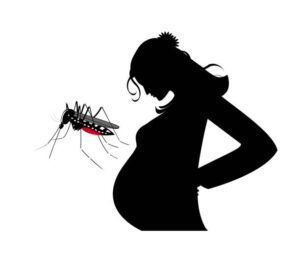Prophylaxis is a measure taken to prevent a disease from happening, intervening before the health effects of that particular disease begin to manifest. Prophylaxis is a method that has been sufficient in preventing diseases from happening, especially when you know what’s coming.

Malaria prophylaxis essentially prevents malaria symptoms such as fever and fatigue. Prophylactic antibiotics are antibiotics that you take to prevent infection. Normally, you take antibiotics when you have an infection. Your doctor may give you antibiotics ahead of time to prevent infection in some situations where your risk of infection is high. There are certain drugs that can be considered for malaria prophylaxis: Atovaquone-proguanil, Chloroquine Prophylaxis, Doxycycline. You have to consult your medical professional to prescribe these drugs if you want to prevent malaria.
For pregnant women, malaria prophylaxis is very important as having malaria during pregnancy is threatening to both the mother and her child. Malaria will have an adverse effect on both the mother and her baby.

Pregnant women are meant to remain sound and healthy during their gestation period, keeping up with their diets and consulting their doctors for prenatal checkups and diagnosis. There are some fatal effects that malaria has on babies in the womb and their mothers as well. Malaria can cause maternal anemia, fetal loss, abortion, premature delivery, intrauterine growth retardation, and delivery of low birth-weight infants (2500 g or 5.5 pounds), a risk factor for death.
Malaria can be a cause of still birth and tampers with the mother’s health. Losing a child in the womb or still birth can cause mental breakdown. Malaria is a disease that has accounted for an estimated 241 million clinical episodes and 627,000 deaths. An estimated 95% of deaths in 2020 were in the WHO African Region, studies showed. Though malaria seems to be more common in Africa and some parts of Asia, it still affects the world’s population and contributes to fatalities annually.
How can I prevent malaria?
As we know it, malaria is caused by the pathogen plasmodium falciparum, which is carried by the female anopheles mosquito, which breeds in dirty surroundings and areas with stagnant water. The first step in preventing malaria is to keep the environment clean; perform a complete sweep up and make the water in your surroundings clean and stagnant-free.
If you’re already infected, then you’ll have to see a medical professional who will prescribe a drug for you. There should be a physician in your area who is authorised to prescribe drugs for people who are sick or are having symptoms. As for pregnant women who eventually get infected with malaria, you should consult a medical professional immediately as it isn’t something you should go easy with.
This is precisely why it’s highly recommended for pregnant women to take drugs for the prophylaxis of malaria. Now, there are different methods and stages in which you can prevent the disease from happening; the primary prevention, which involves intervening before health effects occur, through The Secondary Prevention which basically involves screening to identify diseases in the earliest. Then there’s tertiary prevention, which involves slowing or stopping disease after it’s been diagnosed.
The preventive health method is a technique that has worked over the years. Diseases are most caused by your lifestyle choices, causative agents, genetics, and environmental factors. It’s a process which begins before an individual even realises it. Why treat it when you can prevent it? Prevention has always been better than curing. Some diseases have no cure, but we can prevent these diseases from happening by adjusting our lifestyle, minding the food we eat, and keeping healthy hygiene and a neat environment.
Because of their decreased immunity during pregnancy, pregnant women are especially vulnerable to malaria. parasite lodges itself in the placenta and causes synctial necrosis. It causes thrombosis of the placental vessels, leading to infarction. The spikes of fever lead to the release of prostaglandins, which cause abortions and preterm labour. The focal placental infarction decreases nutrition to the foetus, causing intrauterine growth retardation, low birth weight, and intrauterine foetal death. The Centers for Disease Control and Prevention (CDC) has recommended the antimalarial drug mefloquine for pregnant women both as a malaria treatment option and as an option to prevent malaria infection for all trimesters.
[starbox]



